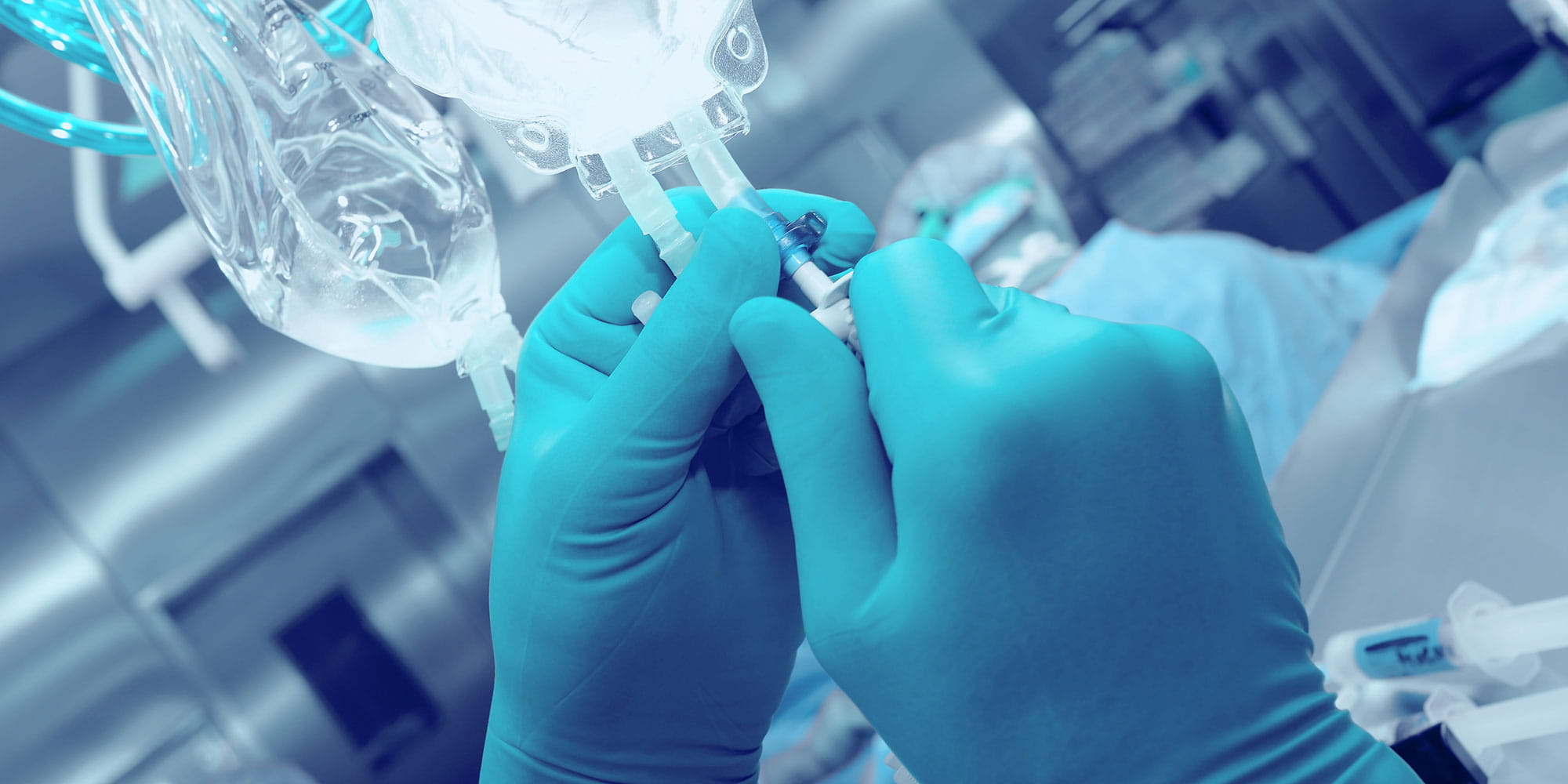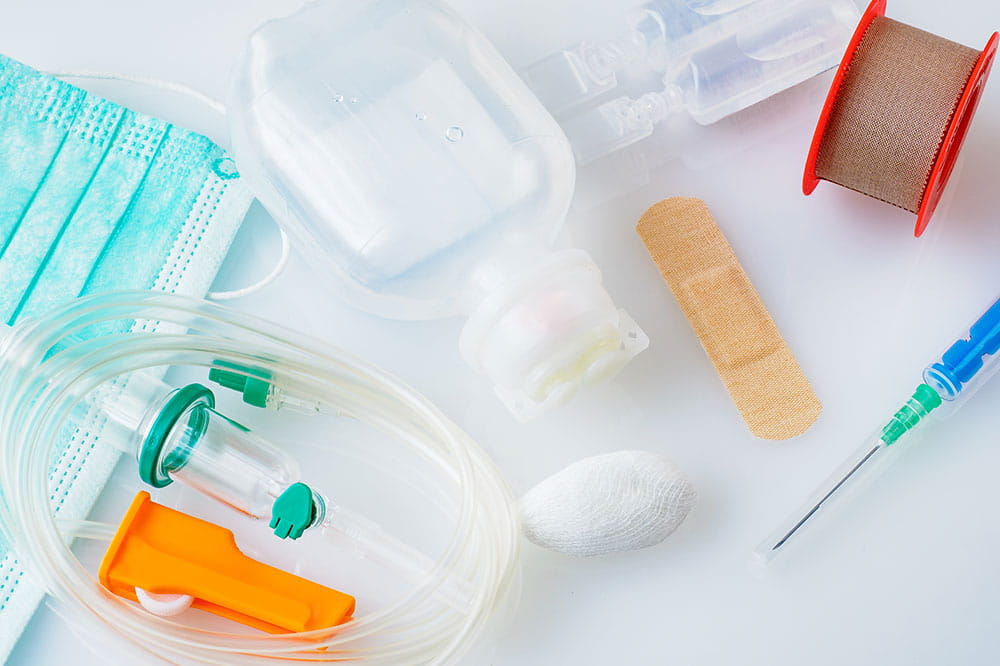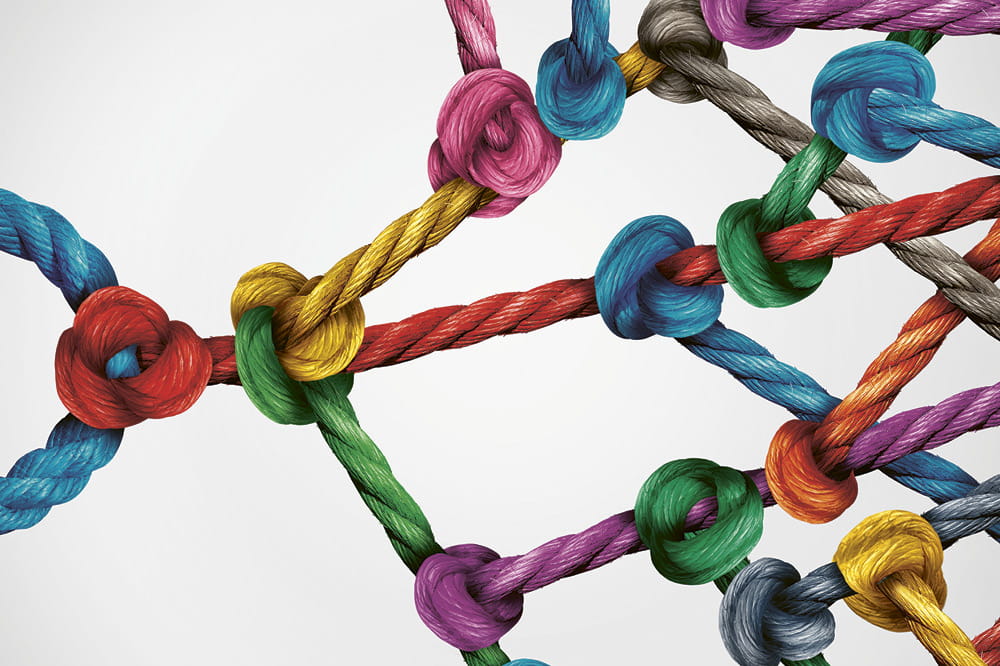Obtain news and background information about sealing technology, get in touch with innovative products – subscribe to the free e-mail newsletter.

Plastics for Bodily Contact
A plastic-free hospital? That’s inconceivable. From single use gloves to syringes, all the way to implants – plastics are indispensable in modern medicine. What are the advantages of this class of materials? And what requirements must they meet in this critical field?
Today there are plastics that can remain in the body long-term without undergoing any changes – and there are plastics that completely dissolve after a certain length of time. Steady progress in materials and medical practice has produced special plastics with fascinating characteristics. Plastic can even be armed with antimicrobial effects: Additives such as titanium oxide and silver ions, once they are added to materials and coatings, limit the spread of much-feared multi-resistant microbes in hospitals.
Safe and Flexible
“Plastics are the chameleons of the material field. They meet the requirements of the most diverse industries flexibly,” said Professor Christian Bonten, Director of the Institute for Plastics Technology at the University of Stuttgart. The end-all and be-all of the medical and pharmaceutical industries are patient safety and effective applications. Plastics are an answer in either case.
Bonten gave this example: “Plastic products permit fast, germ-free emergency care of patients.” In an emergency, every second counts, and medical staff have to go all out. That’s why first responders and doctors must be able to rely on instruments they can use without complications. The tools have to be stable, unbreakable and above all sterile, and be available immediately.

In medicine, plastics have increasingly replaced glass and metal ever since the invention of the single-use plastic syringe in the mid-1950s. More than half of all medical products worldwide are now made from plastic. There are both hygienic and economic reasons for the rise of single-use materials in microbe-free packaging for medical and nursing care. If it’s no longer necessary to thoroughly sterilize instruments and other aids after each use, medical staff save time and reduce the risk of contamination. Plastic is also superior in another way: Unlike instruments made of nickel or aluminum, they pose no allergy risk.
Due to their strength and their resistance to heat and disinfectants, thermoplastics such as ABS and PEEK have proven themselves as good materials for use in medical technology. And if elasticity is needed, for example, silicone is used for infusion and respiration tubes that absolutely cannot be allowed to crimp.
Biocompatible and Bioresorbable
Biocompatibility is one of the most important requirements for plastics used in medicine. Medical devices must be harmless to humans yet resistant to organic substances such as blood. Every plastic used in medical or pharmaceutical technology undergoes stringent testing. “More and more attention is paid to interactions if products such implants stay in the body for more than thirty days,” Bonten said.
Other plastics are designed to totally dissolve in the body after a specified length of time. They are found in bioresorbable sutures and screws, the latter made from the biopolymer polylactide. In heart surgery, bioresorbable vascular bridges to treat coronary heart disease are being tested as an alternative to metal stents. They stabilize the artery during the healing process and decompose after three to four years in the body.
Health versus Recycling
Plastics offer many unbeatable benefits in the medical field, so it’s no surprise that they are so widely used. But what about their environmental impact? Cleaning and recycling is out of the question for many health-care materials because of safety concerns. “The use of recycled materials is prohibited in many cases. Moreover, in some instances, there are rules requiring plastic objects from hospitals to be incinerated to prevent the spread of disease,” Bonten said.
To put it another way, even doctors and hospitals generate plastic scrap in their work, – with every rubber glove, every pallet of pills, and every syringe – even if concerns for the health of humankind are driving the creation of the waste. Medical technology is facing precisely the same challenge as other industries. The big questions are whether biodegradable plastics could be an alternative at some point or whether it could at least be possible to cut down on the use of the materials.
Our current focus is on single-use plastic products, the stress that they place on the environment, and how we can deal with the problem. And on the question of whether plastics themselves can be part of the solution. Find out more on the topic “Plastic – Breakthrough and Burden” in the upcoming issue of our company magazine ESSENTIAL, which will be available by mid-November.
More Stories About Sustainability













